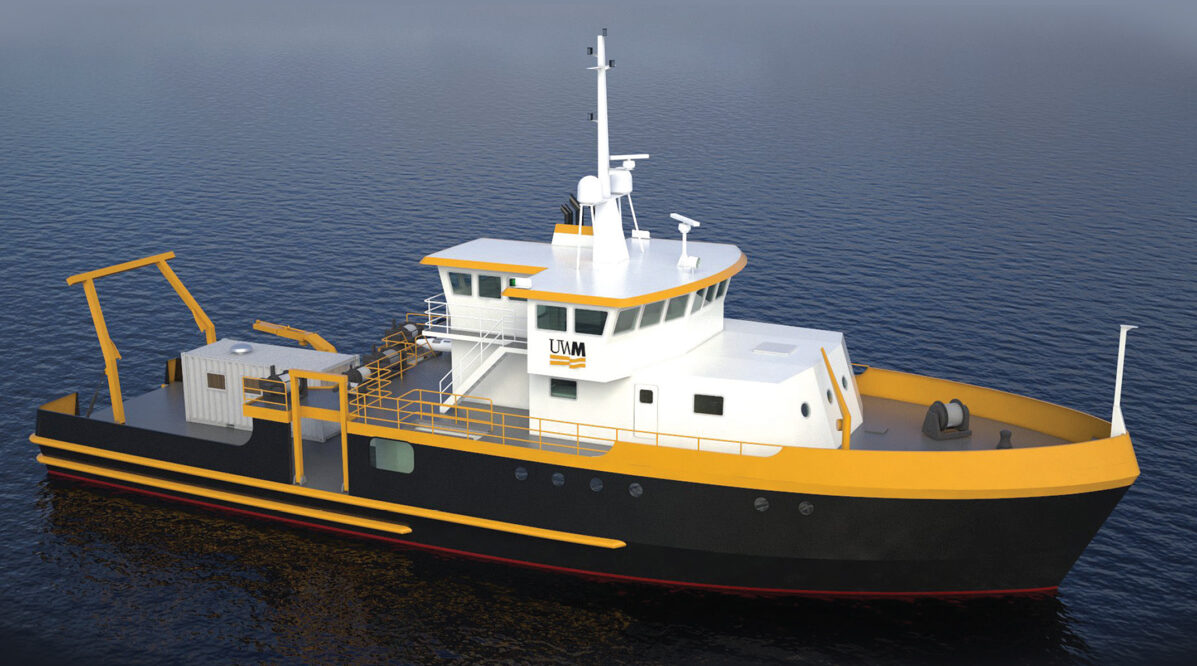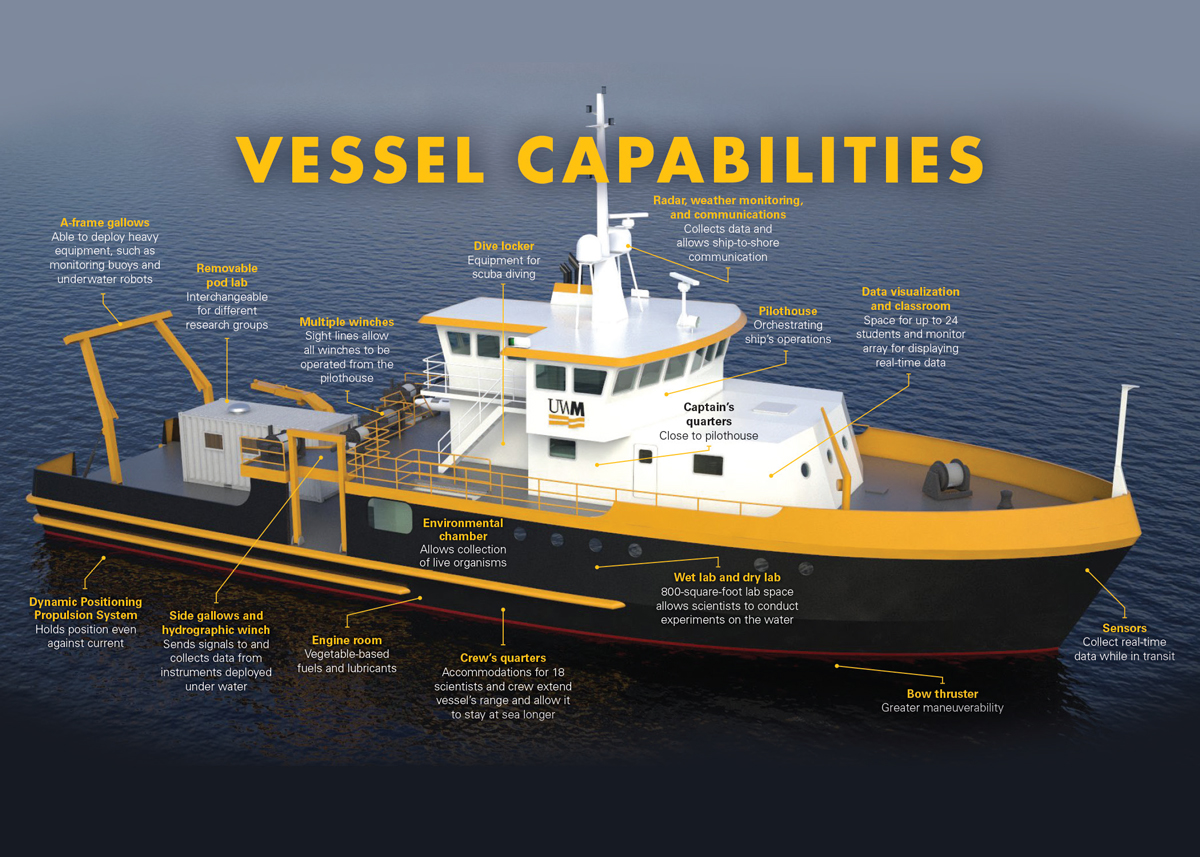
Rendering of new research vessel Maggi Sue
The Brookby Foundation has committed $1 million to the University of Wisconsin-Milwaukee in support of the School of Freshwater Sciences’ new research vessel, which will be named the Maggi Sue.
“I am deeply grateful to our friends at the Brookby Foundation for their visionary support of our world’s most precious resource: fresh water,” UWM Chancellor Mark Mone said. “Tens of millions of people rely on the Great Lakes for drinking water, employment, energy production, shipping needs and recreational activities. These bodies of water have a profound effect on our economy and quality of life. The Brookby Foundation has stepped up to help preserve this precious natural resource.”
The Maggi Sue will replace the Neeskay, a converted Korean War-vintage Army T-boat purchased by UWM more than 50 years ago. The new vessel will be the most advanced research vessel ever built for the Great Lakes, with onboard technology featuring sensors that collect real-time data, interchangeable lab pods that can be swapped out based on the needs of the scientists, and a dynamic positioning system that will keep the vessel in place despite currents, wind and waves.
The Maggi Sue will also provide a state-of-the art facility for UWM students in the School of Freshwater Sciences to gain hands-on research experience on the Great Lakes. The vessel will feature wet and dry lab spaces for onboard experiments, a classroom and data visualization lab that will accommodate groups of students of all ages and sleeping accommodations that will allow scientists and crew to remain on the water for longer periods of time, gathering continuous readings without needing to return to shore.
The School of Freshwater Sciences has raised over $13 million toward the $20 million needed to launch the Maggi Sue. Once fundraising is complete, construction of the vessel will take approximately two years. The vessel will be the largest 100% privately funded capital project in UWM’s history.
Founded by Wendy and Paul Greeney and their family, the Brookby Foundation seeks to promote community well-being by supporting artistic and scientific literacy, with a special interest in endeavors that protect or improve the environment. Prior to this gift, the Brookby Foundation provided faculty support related to the School of Freshwater Sciences’ Center for Water Policy, helped establish the school’s outreach office and established the Brookby Scholarships in Water Science Literacy.
Originally from Michigan, the Greeneys lived in the Milwaukee area for 20 years. Paul Greeney retired from his role as teacher and science department chair at the University School of Milwaukee in 2011. They now split their time between Milwaukee and Traverse City, Michigan.
“We believe in making a difference where we can,” Wendy and Paul Greeney said in a statement. “That is why we have chosen to make a gift that will advance research and help protect Lake Michigan and all of the Great Lakes. We have a deep appreciation for science, and it’s the responsibility of us all to make the world a better place. Support for the research vessel is how we’re choosing to do that.”
The vessel will be among the tools used by the Freshwater Collaborative of Wisconsin, a partnership of Wisconsin’s 13 public universities and housed at UWM. Through the collaborative, UW System campuses are working together to train the next generation of water researchers and to establish Wisconsin as a global leader in water-related science. The vessel will also be a resource for scientists in Wisconsin, Michigan, Illinois and Indiana conducting work on Lake Michigan, as well as scientists working across the Great Lakes.
“The Brookby Foundation has been a valued partner of the School of Freshwater Sciences for years, and I appreciate the Greeneys’ insightful support of our efforts,” Vice Dean Rebecca Klaper said. “The Great Lakes are incredibly complex systems. So many factors influence the health of these bodies of water, including our rapidly changing climate, invasive species and chemicals that can’t be seen by the naked eye but have a significant and lasting effect on our freshwater ecosystems. The new vessel will enhance our ability to research what’s happening in the Great Lakes and allow us to come up with creative solutions to manage, preserve and protect them for today, as well as for future generations.”

